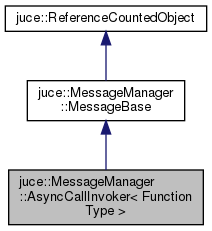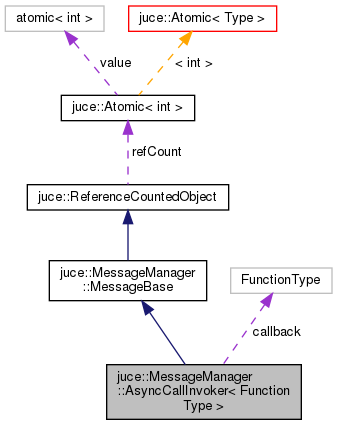◆ Ptr
◆ AsyncCallInvoker()
template<typename FunctionType>
◆ decReferenceCount()
| void juce::ReferenceCountedObject::decReferenceCount |
( |
| ) |
|
|
inlinenoexceptinherited |
Decreases the object's reference count.
If the count gets to zero, the object will be deleted.
References jassert.
◆ decReferenceCountWithoutDeleting()
| bool juce::ReferenceCountedObject::decReferenceCountWithoutDeleting |
( |
| ) |
|
|
inlinenoexceptinherited |
Decreases the object's reference count.
If the count gets to zero, the object will not be deleted, but this method will return true, allowing the caller to take care of deletion.
References jassert.
◆ getReferenceCount()
| int juce::ReferenceCountedObject::getReferenceCount |
( |
| ) |
const |
|
inlinenoexceptinherited |
Returns the object's current reference count.
◆ incReferenceCount()
| void juce::ReferenceCountedObject::incReferenceCount |
( |
| ) |
|
|
inlinenoexceptinherited |
Increments the object's reference count.
This is done automatically by the smart pointer, but is public just in case it's needed for nefarious purposes.
◆ messageCallback()
template<typename FunctionType>
◆ post()
| bool juce::MessageManager::MessageBase::post |
( |
| ) |
|
|
inherited |
◆ resetReferenceCount()
| void juce::ReferenceCountedObject::resetReferenceCount |
( |
| ) |
|
|
inlineprotectednoexceptinherited |
Resets the reference count to zero without deleting the object.
You should probably never need to use this!
◆ callback
template<typename FunctionType>
The documentation for this struct was generated from the following file:

